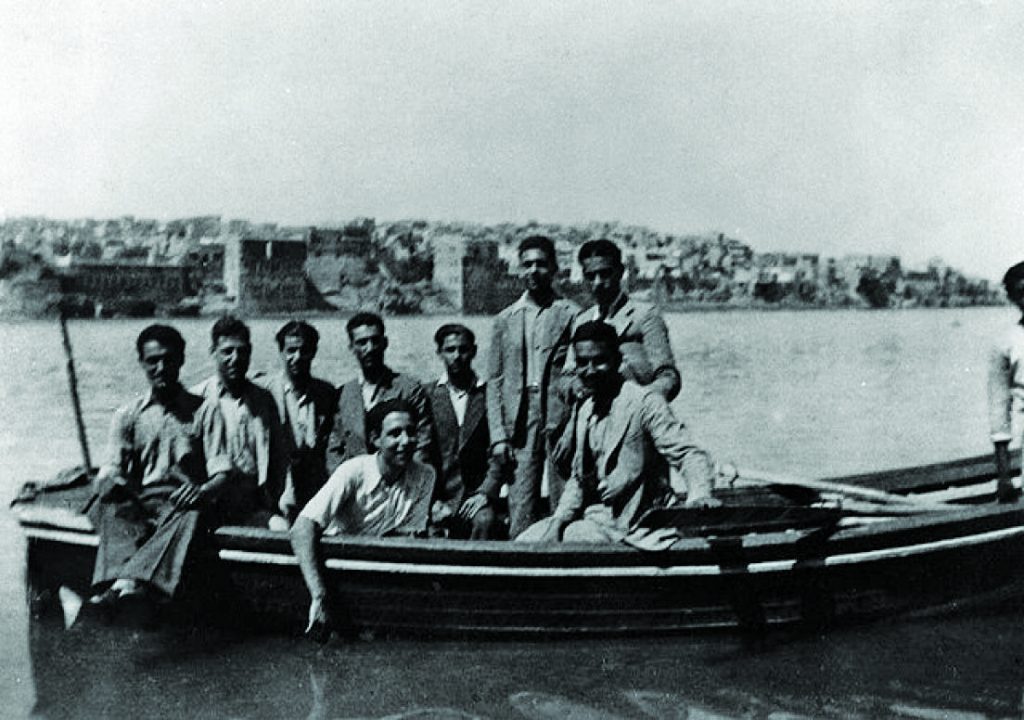Australia/Israel Review
Deconstruction Zone: The Pogroms of the Middle East
Aug 8, 2019 | Edy Cohen

A look at developments in the Middle East over the past decades gives the clear impression that the region is becoming “cleansed” of minorities, especially the Christians who have inhabited it for millennia.
The process is reminiscent of what happened to the Jews of the Arab countries, who had to flee their homes amid pogroms and persecutions they suffered throughout the 20th century, especially after the establishment of the State of Israel and its military victories over its Arab enemies.
It was in Morocco, where several thousand Jews have remained, that the first massacre of Jews in the 20th century occurred – in Fez, on April 17, 1912, after Sultan Mulai Abd al-Hafid signed a treaty that turned Morocco into a French protectorate. For many Moroccans, this handing of the reins of authority to a Christian ruler was an act of betrayal. Unable to attack French people, the Arab mob opted to attack Jews and their properties. Fifty-one Jews were murdered, and many homes were looted.
On August 3, 1934, a Jewish tailor in the Algerian town of Constantine cursed Muslims and insulted Islam while drunk. The result: pogroms against the local Jews that killed 25 and wounded 38.
In June 1941, the Farhoud broke out in Baghdad. About 200 Jews were murdered and thousands wounded by their Arab neighbours. Jewish property was looted and many homes were set ablaze.
Four years later, on the anniversary of the Balfour Declaration, large numbers of Arabs took out their frustration with Nazi Germany’s defeat by perpetrating pogroms in several Arab countries. In Egypt, 10 Jews were killed and about 350 were wounded during Muslim Brotherhood riots. Synagogues, the Jewish hospital, and old-age homes were burned and more than 100 Jewish shops were ransacked. In Libya, some 140 Jews were murdered, synagogues were burned, and homes were looted.
On the day after the adoption of the UN partition resolution on November 29, 1947, calling for both a Jewish and Arab state in British-mandate Palestine, pogroms against Jews erupted in several Arab countries. These were not coordinated, but spontaneous. The Muslims could not understand how the Jews, who had lived among them for 1,300 years as legally and institutionally inferior “protected persons” (dhimmis), were to be granted a state in which they would rule over, among others, a sizeable Muslim minority. This chagrin sparked a number of pogroms.
In Aleppo, Syria, 75 Jews were murdered. In Aden, Yemen, about 80 Jews were slaughtered, Jewish shops were looted, and synagogues were set ablaze. Thousands of Jews fled Aden and were held in detention camps in inhuman conditions. This led to Operation Wings of Eagles, in which tens of thousands of Yemenite Jews were flown to safety in Israel.
Some three weeks after Israel’s establishment, on June 7-8, 1948, pogroms occurred in the Moroccan towns of Oujda and Jerada. Forty-two Jews were murdered, and hundreds were wounded. Several days later, 14 Jews were murdered in Tripoli in Libya. In June and July 1948, in response to the Egyptian army’s failure to destroy the newly-established Jewish state, the Jewish areas of Cairo were beset by Muslim Brotherhood bombings, acts of sabotage, and attacks; dozens of Jews were killed and wounded.
The story recurred after Israel’s victory in the 1967 Six-Day War, when leaders of Arab countries took revenge on the depleted Jewish communities still under their rule. Thousands of Jews were forced to emigrate as a result.
Two years later, on January 27, 1969, nine Jews, some of them minors, were hanged in the Baghdad city square on the concocted charge of collaboration with Israel.
Is the fate of the Middle East’s Christians likely to resemble that of the Jews of Arab countries? The data currently indicates that the Christians have been in large-scale flight from the region since 2014, when ISIS rose to power in Syria and Iraq. Many Western embassies have been ordered to grant entry visas immediately to Christians who wish to leave these places, and the process has yet to reach its peak.






